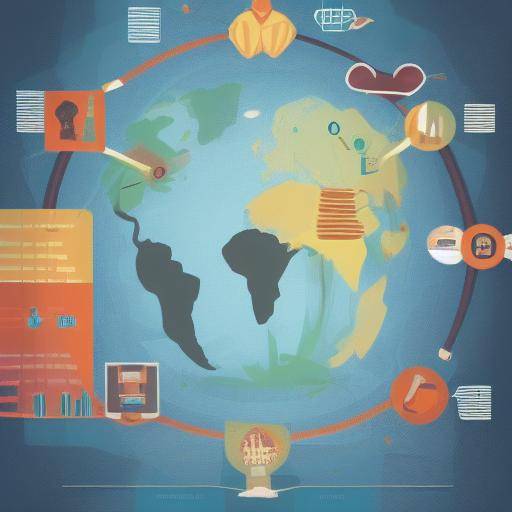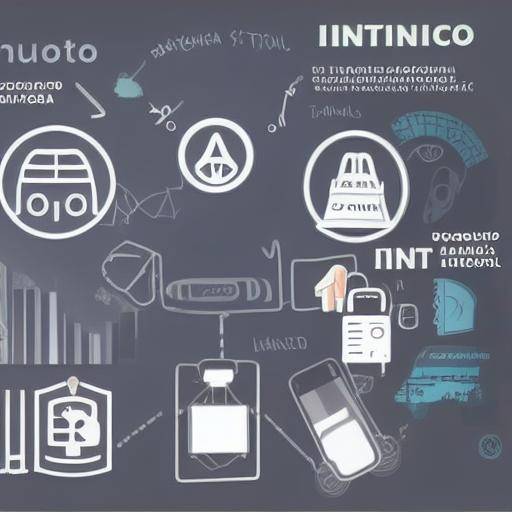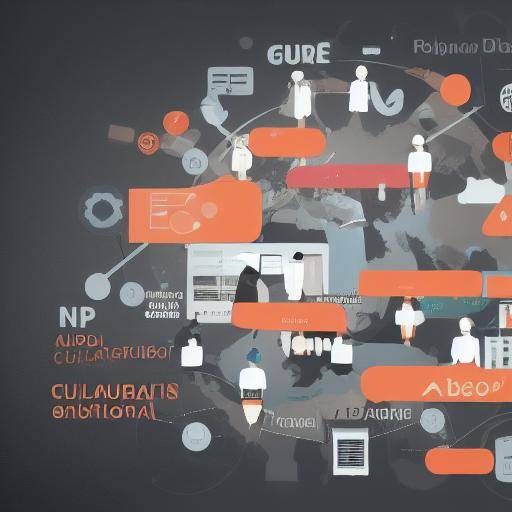
Empathy, cultural intelligence and interpersonal relationships are fundamental elements in human interaction. In today's world, characterized by growing cultural diversity, the ability to understand and relate to people of different origins becomes increasingly crucial. In this article, we will explore the importance of empathy in the development of cultural intelligence and its impact on interpersonal relationships. From its historical origins to its practical application in various contexts, we will analyze in depth these key concepts.
Introduction
Empathy, understood as the ability to get into each other's place and understand their emotions, is an ability that directly influences the way we relate to others. In turn, cultural intelligence refers to the ability to understand, interpret and respond effectively to cultural differences. These elements are essential for the development of strong and significant interpersonal relationships, both in the personal and professional spheres.
In this article, we will explore the importance of cultivating empathy as a basis for the development of cultural intelligence and its impact on interpersonal relationships. From its historical evolution to its practical application in the present world, we will examine in detail the influence of these concepts in contemporary society.
History and Background
Empathy and cultural intelligence have deep roots in the history of humanity. From ancient philosophies to sociocultural movements, these concepts have evolved over time. Empathy has been considered a fundamental skill for social coexistence since ancient times, while cultural intelligence has gained greater relevance with globalization and the interconnection of cultures.
In exploring this historical context, it is possible to understand how these notions have acquired their current importance and how they have influenced the way we relate to others. From ancient Greece to the era of globalization, each period has left its mark in the development of empathy and cultural intelligence.
Analysis in Deep
The development of empathy and cultural intelligence entails a number of benefits, as well as current challenges and trends. Studies and statistics demonstrate the positive impact these skills have on interpersonal relationships, conflict resolution and work on diverse teams. However, it is also important to recognize the challenges associated with intercultural understanding and diversity management.
Analyzing different perspectives and opinions on empathy and cultural intelligence allows us to understand its complexity and its application in diverse contexts. Experts in psychology, anthropology and sociology offer enriching visions that invite us to reflect on how we can strengthen these skills in our daily lives.
Comprehensive review
The practical application of empathy and cultural intelligence is reflected in case studies and good practices that illustrate their impact in different fields. From business to education and community development, it is possible to find concrete examples of how these skills can generate a positive change in society.
By analyzing the pros and cons of different approaches in the development of empathy and cultural intelligence, we can identify the most effective strategies for their promotion. To compare methods and approaches gives us a broad view of the possibilities and limitations in this regard.
Comparative analysis
Compare empathy, cultural intelligence and interpersonal relationships allows us to identify their similarities, differences and possible synergies. The interrelationship between these concepts is fundamental to understanding their mutual influence in the way we relate to people of different cultural contexts.
In examining concrete examples and diverse scenarios, it is possible to understand how these elements intertwine to form a complex network of human interactions. The ability to differentiate and value these three dimensions is crucial for effective development of intercultural skills.
Practical Tips and Accessible Tips
To strengthen empathy and cultural intelligence, it is important to have practical advice that guide us in their development. Establishing clear guidelines and day-to-day practices that promote intercultural understanding is essential for integrating these skills into our daily lives. From active listening to cultural adaptation, there are concrete strategies that we can implement to enrich our interpersonal relationships.
- Practice active listening: Dedicates time to understand the emotions and perspectives of others.
- Learn about different cultures: Expand your knowledge about traditions, customs and values of different cultures.
- It promotes empathy in the workplace: It promotes an inclusive and respectful environment in the workplace.
- Take part in intercultural experiences: Find opportunities to interact with people from different backgrounds and cultures.
- Cultivate curiosity: Make open questions and show genuine interest in the experiences of others.
Industry Perspectives and Expert Reviews
Experts in the field of psychology, anthropology and intercultural management offer valuable insights on the impact and evolution of empathy and cultural intelligence in today's society. Their views and analysis allow us to visualize the emerging trends and future implications of these skills in an increasingly interconnected world.
By collecting knowledge and reflections from specialists in different fields, we can understand how empathy and cultural intelligence are integrated into specific contexts and how they can influence the creation of inclusive and collaborative environments.
Case Studies and Practical Applications
Case studies offer concrete examples that illustrate the successful application of empathy and cultural intelligence in various scenarios. In analyzing these situations, it is possible to identify learned patterns and lessons that enrich our understanding of how these skills can generate a positive impact on society.
Reviewing the real experiences of people, organizations and communities gives us a detailed view of how empathy and cultural intelligence manifest in everyday contexts. These practical cases offer a deep understanding of the challenges and opportunities that arise in fostering intercultural understanding.
Future Trends and Predictions
Emerging trends in the development of empathy and cultural intelligence provide us with valuable information on the challenges and opportunities that may arise in the future. By analyzing current data and expert projections, it is possible to anticipate how these skills will evolve in a constantly changing world.
Exploring future trends allows us to prepare for the challenges that may arise in the field of intercultural relations and offers us the opportunity to identify areas of growth and development in this field.
Conclusion
In conclusion, empathy plays a key role in the development of cultural intelligence and its impact on interpersonal relationships. Understanding and cultivating these skills allows us to strengthen social cohesion, foster inclusion and promote collaboration in a diverse and complex world.
By integrating empathy and cultural intelligence into our daily interactions, we can build bridges between people of different cultures, thus promoting a more equitable and understanding environment. The practical application of these concepts invites us to expand our understanding and to foster more meaningful and enriching interpersonal relationships.
Frequently asked questions
What is the difference between empathy and cultural intelligence?
Empathy refers to the ability to understand the emotions and perspectives of others, while cultural intelligence implies the ability to understand and adapt to different cultural contexts. While empathy focuses on interpersonal relationships, cultural intelligence encompasses a wider spectrum of intercultural understanding.
How can I improve my cultural intelligence in the working environment?
To improve your cultural intelligence in the working environment, it is important to be open to learning about the different cultures present in your workplace. It promotes open communication and respect for cultural differences, and seeks opportunities to participate in intercultural activities or projects.
Why is empathy important in intercultural relations?
Empathy is fundamental in intercultural relations because it allows us to understand the perspectives and emotions of people with different cultural backgrounds, which promotes mutual understanding and conflict mitigation.
What are the key skills to develop cultural intelligence?
Key skills to develop cultural intelligence include empathy, openness to new experiences, cognitive flexibility and ability to adapt to diverse contexts.
How can I practice empathy in my daily life?
To practice empathy in everyday life, it is important to listen actively, show genuine interest in the experiences of others and seek to understand different perspectives. Empathy is also strengthened by recognizing and validating the emotions of others.
What is the impact of cultural intelligence on global environments?
Cultural intelligence has a significant impact on global environments, as it allows individuals and organizations to understand and adapt to cultural differences, thus facilitating collaboration and success in a globalized context.
In short, empathy, cultural intelligence and interpersonal relationships play a crucial role in contemporary society. In understanding its importance, history, practical application and future trends, we can strengthen our ability to relate significantly in a diverse and ever-changing world.

























